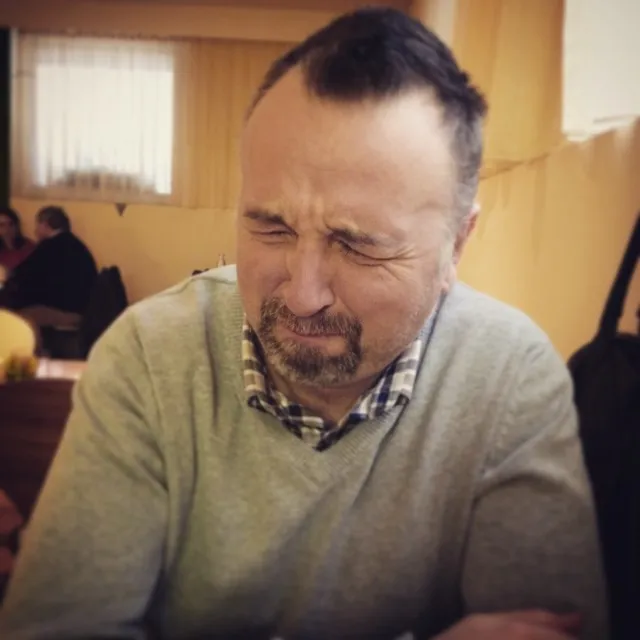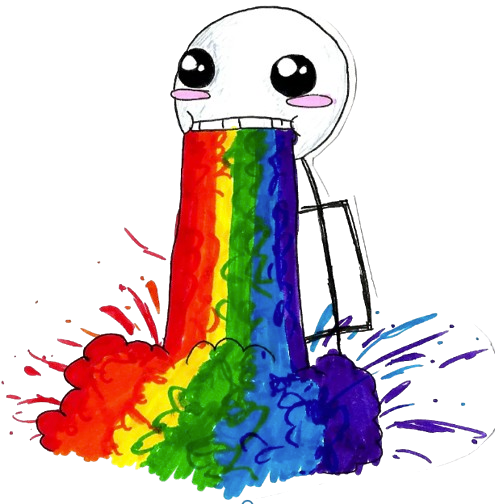First and foremost, this is not science. I’m not trying to convince you about any specific theory. I’m not a nutritionist. It’s about my experience and just my opinion.
Clearing that up, let’s start with a little bit of history.

When I was a kid, sometimes my parents tried to feed me a spoonful of coffee, just to let me taste it. It was bitter and tasted like licking an ashtray. In fact, it tasted really, really awful. For a long phase of my life — about 35 years — I never ever drank coffee, sometimes feeling a little bit left out during social breaks at work (I didn’t smoke either — how disdainful of me).
Flash forward to late 2006: I’m somewhere near Canoa Quebrada, on the coasts of Cearà, Brazil. My friend Filippo Giunta and his family invite me on a buggy trip in the desert. After the dreamy, exciting promenade, we end up at an outdoor restaurant. Somebody tells me “you should try picanha, it’s really good meat”. I try it and yes, it is.
No, I’m lying: it tasted like

“OH MY GOSH” I scream in excitement “IT’S THE BEST MEAT EVER!!!!111!!” as I start guzzling more and more steaks.
The waiter looks paternally at me and muses: “Would you like some coffee as well?”
I slap my hand on the table, the ecstasy of the red meat hormones jumping in my brain: I scream “YES! YES! YES!” (hint: I was so excited at that point I would have probably accepted drinking a gallon of Tide too).
So I slowly started drinking coffee.
It became a subtle habit: in my junk food days, I used to drink up to 6 liters of bottled, sugary tea, and my weight ballooned to 116kg. I was a living ball of saccharine. I detoxed from my habits and got back down to 79kg, but coffee remained in the picture. It’s innocent: I just take one or two per day and it doesn’t seem to impact my metabolism. Or at least, that’s what it seems like.
Or at least, it doesn’t seems like.
We move to 2015; my soon-to-be wife teaches me this great truth: sugared coffee is not coffee — it’s another drink. And it’s true: I force myself to drink sugarless coffee — it’s even more bitter and strong — and I don’t like bitter tastes, but yes, I can sense the difference between a good and a bad coffee. It doesn’t just taste the same.
Or so I think.
2022 has not been a good year for most of us, too. Crisis, war, inflation, pandemics — there hasn’t been a good news day. I always woke up miserable, sometimes at 5am, mumbling, grumbling, doomscrolling, PS5ing, project-managing until breakfast. Sure, it wasn’t the best time to be jolly, lalalalalalala, but I really felt miserable, dragging myself around like a grumpy zombie. At the office, I drink one, two, or even three coffees in a row, totaling five coffees a day. I tell myself that it doesn’t affect my mood, but the truth is that my sleep patterns are disrupted and I blame it on the stress.
And stressed I was, sure enough, but.
So I tried giving up coffee. I just drank too much of it. Surprise, I soon felt better. I’m not talking about some crazy “Saint Paul on the road to Damascus” epiphany thing, but somehow my mood became rapidly lighter.
The first few days without coffee were complicated at breakfast: no coffee means you have to drink something else instead. I decided to just rehydrate with some water, and it felt perfectly fine. I felt like when you fast a bit after you ate too much: definitely healthier.
So I discovered my truth: coffee is some sexy son of a bitch. Coffee is not giving you any energy at all. Coffee just squeezes all the energy you have in your body and pushes it outside in a short time, then you are tired again, and you need coffee for another blast. It’s not giving you some magic spell to cast away all dangers in life with a rush of caffeine: it’s just a catalyst for your energy.
W. sips some wine and tells me: “when I’m depressed or angry, coffee just makes it worse”.
Let’s get back to my example: I woke up at 4am after 3.5 hours of sleep — I usually go to sleep after my Wordle, Quordle and Octordle routine just after midnight. I was awake for one hour, got back to sleep, and woke up at work time in the middle of another 3-hour cycle of sleep. Caffeine came at 7am and then I was fully proficient and blasted to prepare work for my collaborators — again, I’m (also) the project manager in my company. By the time we had our usual 10-minute kickoff meeting, caffeine was going down already and I started to feel tired. After all, I didn’t sleep much and of course there is some nuisance at work — we’re a pretty nice company, but it just happens. So at 9:30, my energy wass already drained down and I took another coffee that squeezed out my remaining energies up until noon, where I’m back tired and hungry. I had my meal with a coffee, felt even more tired and lazy, and there we go again until 4:00, when I took my last one.
Now I guess you can see my pattern too. And start to understand why I felt miserable all the time.
If you made it to this point in the article, you are probably wondering if I found some magic recipe to avoid coffee. The answer is — no, I didn’t. I didn’t even try, actually, because my body just tells me I don’t even need to.
I sleep a lot better at night — even during stressful periods — the end of the year is usually very stressful for entrepreneurs like me, but cases where I wake up at 4am are becoming more rare. I don’t feel like I am miserable and drained of energy like before because — in fact — I am not. I feel much more vital and happy now.
Please, don’t even think for a second that I’m labeling coffee as the devil. I’m not blaming coffee — I’m blaming myself.
I still like coffee — rarely, but I still drink it — but being espresso-dependent is not so different from any other dependency. It’s still more socially accepted than cocaine (is it?) but, in my opinion, it has to be used sparingly, perhaps for its sheer taste. Maybe we need to appreciate it more, and learn to distinguish its rich flavors, and not just guzzle a generic “COFFEE” we know nothing about: nobody would ever go into a winery and order just “WINE”. We don’t do it with wine, we should show some real love for coffee too.
